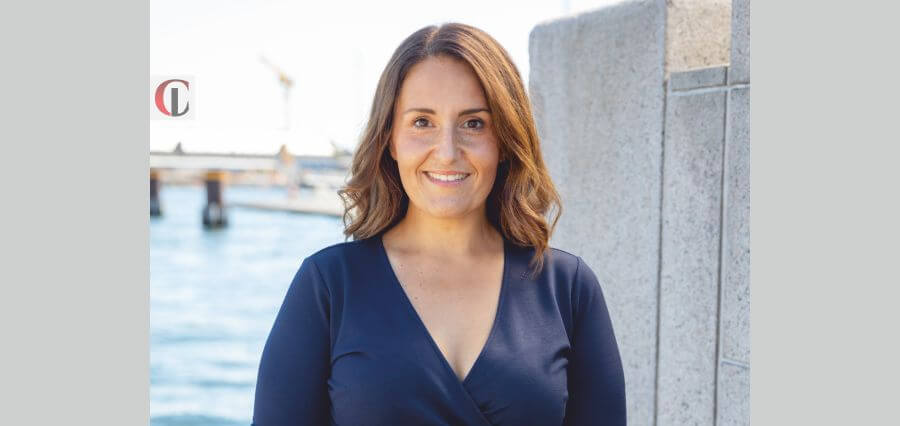Meet Angela Hultberg, the Global Sustainability Director at Kearney, where she plays a key role in assisting clients in transitioning to genuinely sustainable business practices. Prior to her role at Kearney, she served as the Head of Sustainability at Ingka Group (IKEA Group), where she focused on sustainability aspects related to last-mile delivery, customer and co-worker transportation, and infrastructure development, among other responsibilities.
Angela has also served as the Road Transport Lead at the Climate Champions Team for COP26, showcasing her dedication to addressing climate-related issues. With extensive experience in sustainable transformation, sustainable transport and mobility, environmental, social, and governance (ESG) practices, circular economy initiatives, and supply chain management, Angela is well-versed in various facets of sustainability and brings a wealth of knowledge to her role. Her background demonstrates a commitment to driving positive environmental and social impacts within corporate practices and beyond.
From IKEA to E-Mobility Advocate
Angela’s journey into sustainability gained momentum during her time at the transport department of IKEA, where she worked on various projects. It was in this role that she recognized the significant impact sustainability could have as a disruptor in the industry. Realizing the potential to shape the future of work and the entire sector, Angela decided to focus on sustainability.
Driven by a passion to decarbonize transport, Angela delved into exploring various avenues. Her exploration led her to the conclusion that electric mobility (e-mobility) would play a substantial role in the sustainable mobility puzzle. Since then, Angela has dedicated her career to working on topics related to sustainability and e-mobility, contributing her expertise to address environmental challenges in the transportation sector.
Leadership in E-Mobility
According to Angela, the approach to leadership in the realm of E-Mobility is not fundamentally different from leadership in other domains. Leadership requires individuals who can effectively guide their teams, and there isn’t a one-size-fits-all style that works universally. Different leaders may have varying styles, and what resonates with one person may not be as effective for another.
Over the years, Angela has shifted her focus from inspiring people to make the shift toward sustainable practices to providing comprehensive reasons and strategies that make sense. In the current landscape, the conversation has moved beyond the why and what of E-Mobility; it’s now centered on the how. Discussions need to address financial aspects, supply chain considerations, and business models. Angela emphasizes that if organizations are still contemplating whether to invest in E-Mobility, they may face challenges in staying competitive.
Driving Collaboration
Angela underscores the interconnected nature of challenges in the sustainability and E-Mobility space, emphasizing that meaningful progress cannot be achieved in isolation. She recognizes the complexity of the issues at hand and the need for collaboration across the entire ecosystem. Angela sees her role as an opportunity to facilitate collaboration and bring together diverse stakeholders.
Bringing people together and guiding them toward the right collaborative projects is a central aspect of Angela’s work. She emphasizes the importance of engaging stakeholders from various sectors, highlighting the need for a collective and comprehensive approach to create real change. For Angela, a successful day is one where she contributes to fostering collaboration that leads to tangible and positive transformations in the pursuit of sustainable and electric mobility.
Learning and Listening
Angela emphasizes the value of continuous learning, viewing knowledge as a valuable commodity. She advocates listening more than speaking, recognizing the importance of diverse perspectives. With two ears and one mouth, Angela encourages active listening and avoiding echo chambers. Acknowledging the abundance of shared knowledge, she stresses the need to explore opposing thoughts for a well-rounded understanding, promoting a healthy and informed approach to navigating the complex landscape of sustainability.
Sustainable Mobility
In her leadership role, Angela seamlessly incorporates environmental and social considerations into decision-making. Prioritizing sustainability, e-mobility emerges as a key solution for decarbonizing transport. While acknowledging imperfections, Angela underscores the need for green energy, addressing material emissions, and tackling human rights issues related to batteries. Despite existing challenges, she emphasizes the imperative to invest, adopt, and scale e-mobility until a more effective solution emerges. This approach aligns with her commitment to advancing sustainability within the complex landscape of mobility.
Call for Comprehensive Collaboration
Angela emphasizes the need to consider regional variations, pointing out that mobility differs not only due to regulations but also in its definition. She notes the prevalent focus on new car sales in the north-western regions, highlighting the diverse nature of mobility in many parts of the world, encompassing various modes such as 2 and 3 wheelers, public transportation, shared mobility, and informal transportation.
While acknowledging the crucial role of e-mobility in decarbonization, Angela stresses the importance of collaboration, asserting that no single entity can tackle the challenge alone. She calls for the collective efforts of policy makers, the energy sector, cities, infrastructure, real estate companies, the automotive sector, consumers, the finance sector, and others to address the entire system. Angela points out that the complexity of the challenge goes beyond a simple engine replacement, underscoring the necessity for a comprehensive approach.
Advancing Women’s Visibility in Transportation
Angela observes a positive shift with increased visibility of women in the transportation industry, marking progress from being often the sole woman in meetings. While acknowledging the industry’s male-dominated nature, she emphasizes the importance of visibility for aspiring women, recognizing the impact of role models. Angela advocates for diversity, emphasizing its inherent benefits in problem-solving. She values a diverse team for the multitude of ideas it brings, fostering collaboration to generate innovative solutions to challenges, contrasting it with potential limitations in a less diverse team.
Innovating for Tomorrow
Angela emphasizes the importance of staying inspired and fostering a culture of innovation within the Kearney team as they tackle the challenges and opportunities presented by E-Mobility. The team recognizes the urgent need to decarbonize mobility and acknowledges that existing technologies can contribute to this goal if they are scaled and adopted rapidly.
Moreover, Angela sees significant opportunities in deploying new technologies to enhance the impact of sustainability efforts. Artificial Intelligence (AI) is identified as a transformative tool that can improve vehicles, make transportation smarter, influence behaviors, and ensure the integrity of supply chains from a human rights perspective. Angela’s forward-looking approach includes remaining open to the possibility that even better solutions than electric vehicles (EVs) may emerge, and the team is ready to pivot and deploy those solutions if they prove to be more effective. This adaptive and innovation-driven mindset positions Kearney to explore diverse technological avenues for sustainable mobility.




